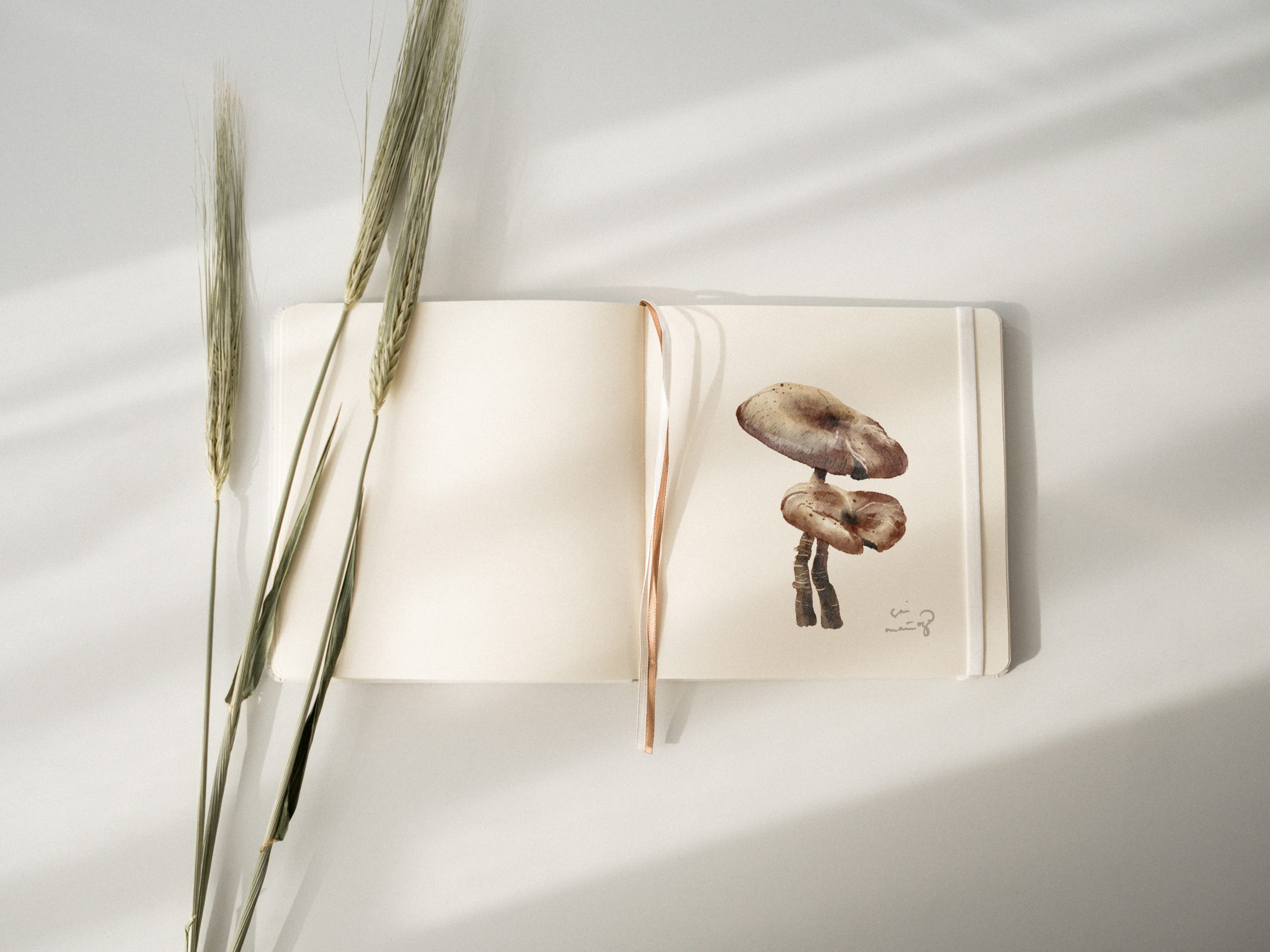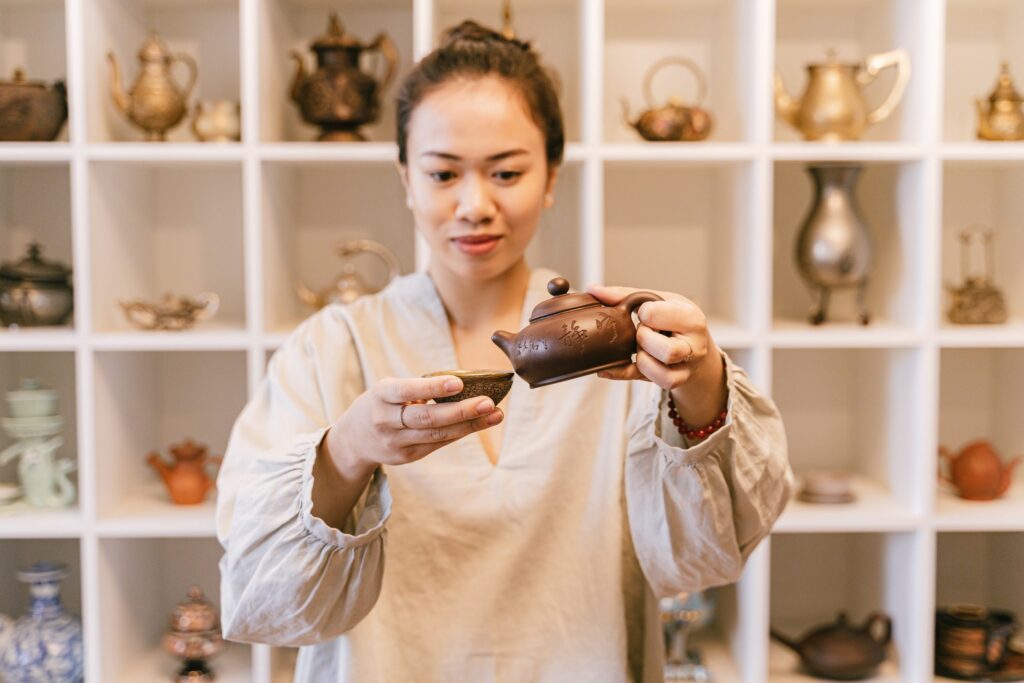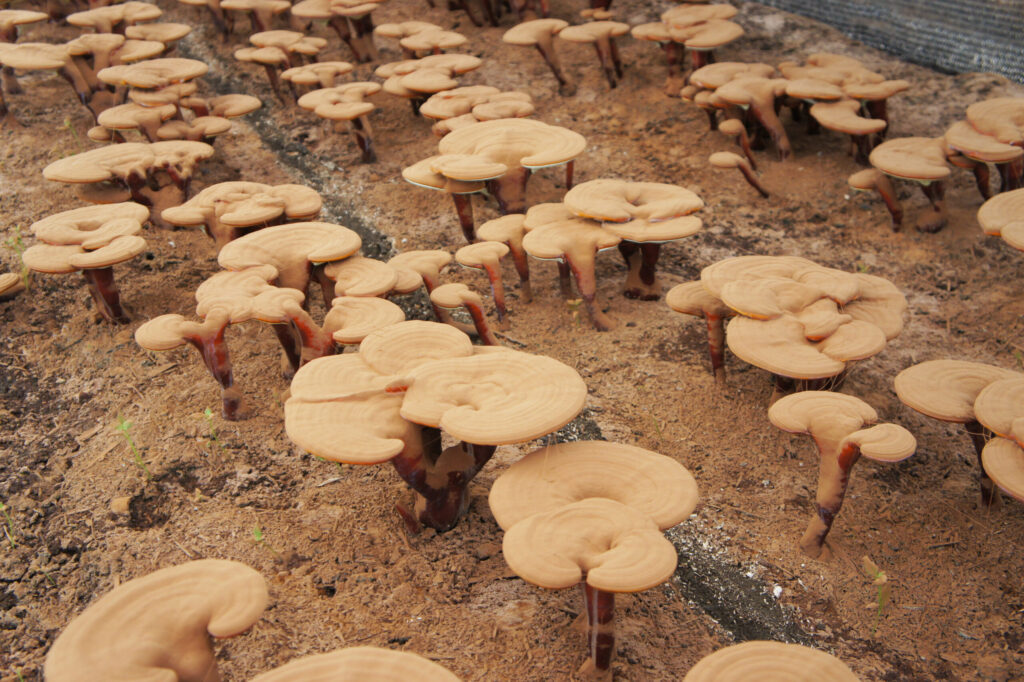Their appearance is otherworldly, their variety is abundant, their benefits are bountiful – there is no question that mushrooms are amazing. While no one can deny their culinary potential, they are also known for their cancer-fighting, digestion-supporting, and brain-protecting properties. But the truth is that we are just beginning to learn how truly fascinating fungi are, and how valuable they may prove to be to our future. In the spirit of this ornate organism, here are some fun facts about mushrooms.
1. Mushrooms Are Everywhere
When you see a mushroom above ground, know that the mycelium (its root-like structure) is spreading out underground. In the same way that an apple is the fruit of the apple tree, a mushroom is the fruit of a fungus. Instead of producing seeds, mushrooms send out tiny spores through the air.
Studying fungi is known as mycology, and there is plenty to learn. It is estimated that there are over 5 million different types of fungus on earth, and we’ve only discovered about 1% of them, making them the most widespread group of organisms on the planet.
2. A Fungus Is the Largest Living Organism on Earth
Believe it or not, the fungi kingdom lays claim to the largest organism on Earth. Nicknamed Humongous Fungus (actual name Armillaria solipides), this species inhabits 2,384 acres or 10 square kilometres of soil in Oregon’s Blue Mountains. Additionally, it is believed to be at least 2,400 years old. It is also called honey mushroom because its fruiting bodies are yellow and sweet.
3. Fungi Turn Ants into Zombies
Feel bad for a carpenter ant who becomes infected with spores scattered by a parasitic fungus called cordyceps. Upon infection, the fungus spreads through the ant’s body, robbing it of nutrients and enslaving the insect. Turning its host into something like a zombie slave, cordyceps force the ant to climb up a plant and lock its mandibles around a leaf. After slowly devouring the ant, the fungus sprouts through the ant’s head. Then, the bulbous growths explode, sending spores into the air to infect more unsuspecting ants below.
There’s a book and a movie based on the book, called The Girl With All The Gifts, that took this idea and ran with it. When I read this book, even before they mention the name of the mushroom that started it all, I knew exactly where they were going with this, and I immediately wished that I had written that book!
Not to worry though, it’s all fiction and cordyceps is actually a great fungi for us to consume to support our health.
4. Mushrooms Can Be Deadly
Death Caps, Destroying Angels, and Deadly Dappering all sound like they come from horror movies. And, no, they do not turn humans into zombies. But they are some of the deadliest mushrooms on the planet, and you would be smart to steer clear of them. They can cause internal bleeding and organ failure that can lead to death. When collecting wild mushrooms in nature, you must be very careful, as they can pose a serious threat if you don’t know how to identify them.
5. Mushrooms Make Reindeer Fly—Well Sort Of
Apparently, the flying reindeer myth isn’t as far-fetched as we think. During long winters, reindeer (along with other animals) sometimes eat a red and white mushroom called Amanita muscaria. This mushroom, also known as Fly Agaric, contains the compounds muscamol and ibotenic acid, both hallucinogens. The problem is it also contains a powerful toxin called muscarine. Despite this, it’s likely that those trying to domesticate the reindeer noted the animals’ unusual behaviour and decided to give it a try themselves. Rather than eat this mushroom to hallucinate visions of Rudolph and his flying buddies (and potentially get very sick), I suggest you watch a Christmas movie instead.
6. Mushrooms Could Replace Pesticides
Mushroom spores have been shown to repel more than 200,000 species of insects! Unlike the toxic pesticides that kill bugs but also accumulate in our environment and in our bodies, certain mushroom spores cause insects to simply avoid the crops they are sprayed on. This would be revolutionary to the food industry, our environment, and our own personal health.
7. Mushrooms are Low-Calorie, But Very Nutritious
I don’t know about you, but I’m not a huge fan of eating rice cakes (or of counting calories). Yes, they can be made tastier with some nut butter or other topping, but otherwise they are pretty dry and tasteless. Mushrooms, on the other hand, offer a huge variety of delicious options, have a lower caloric count, and offer up a powerful punch of nutrients.
They are good sources of potassium, zinc, copper, magnesium, and B vitamins. For those looking for a vegetarian food source of vitamin D, you can find this in mushrooms raised in an environment that exposes them to ultraviolet light. And, as if that were not enough, mushrooms are a good source of fibre and antioxidants, along with an array of phytonutrients that offer medicinal benefits select to each species of mushroom.
8. Reishi Offers Over 400 Nutrients
Reishi is a multitasker. Its polysaccharides, like beta-glucans, help support a balanced immune response. The triterpenoids found in the cap and stem portion can address a wide range of health conditions, including lowering high blood pressure, stabilizing blood sugar, and supporting the heart, lungs, liver, and kidneys. As an adaptogenic herb, it helps the body adapt to stressors and it calms the nervous system without being a sedative.
While the hard chitinous shell of this mushroom makes it a difficult task to simply stir fry up a reishi dinner, there’s an easy way to get your fill. The powerful, bitter compounds of reishi are concentrated and packed into an easy-to-take, one-a-day capsule.
Now that you’ve read a few more fascinating facts about mushrooms, the next time you see one in nature or in the grocery store, maybe you’ll pay it a bit more attention and respect.





